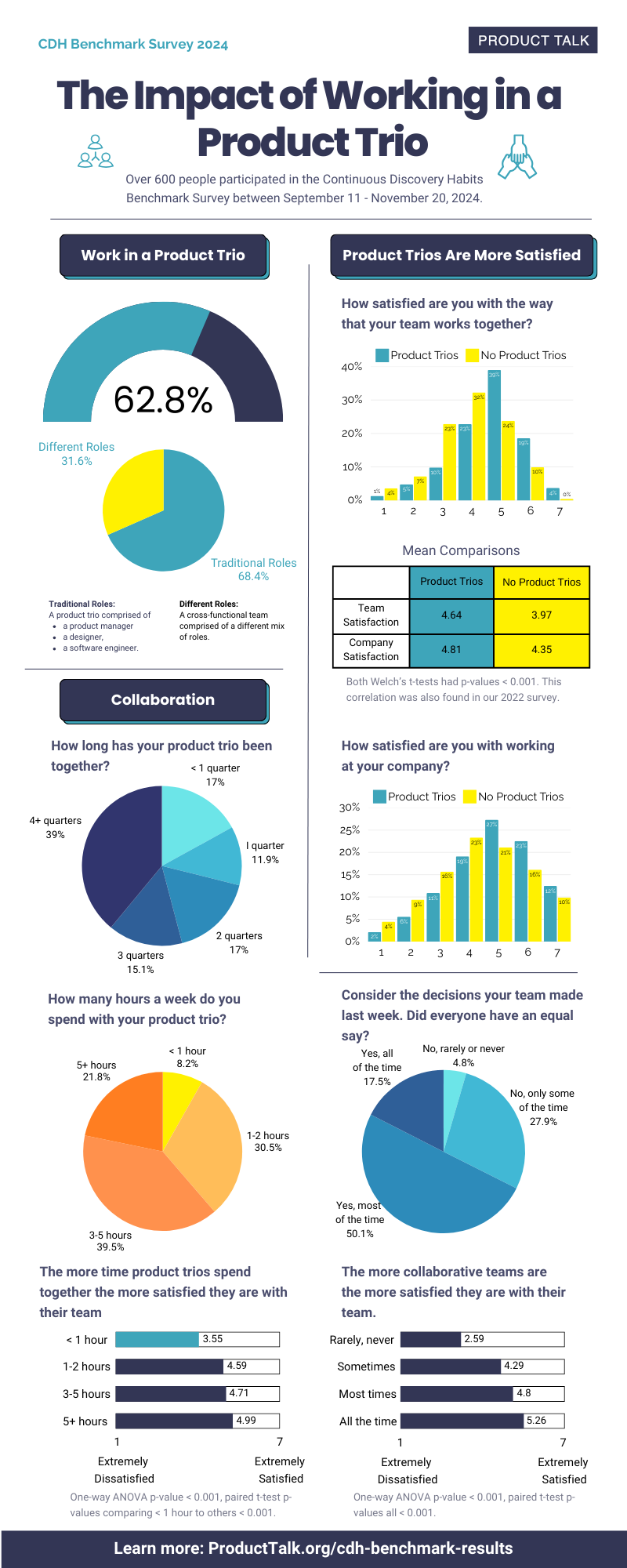employee is afraid to fly, the office poopfoot, and more
It’s five answers to five questions. Here we go… 1. Employee is afraid to fly I work on a small marketing team and have one direct report. A couple of times a year, our team is required to attend industry conferences to staff a booth. These events typically require air travel and are part of […] The post employee is afraid to fly, the office poopfoot, and more appeared first on Ask a Manager.

It’s five answers to five questions. Here we go…
1. Employee is afraid to fly
I work on a small marketing team and have one direct report. A couple of times a year, our team is required to attend industry conferences to staff a booth. These events typically require air travel and are part of the job expectations, outlined in the job description. We rotate travel assignments so the same people aren’t always on the road.
Earlier this year, after some high-profile plane incidents, my employee disclosed that she has a fear of flying and said she wouldn’t be able to attend an upcoming conference. In that case, it was fine — we had plenty of coverage.
My question is: if this becomes an ongoing issue, do I need to accommodate her fear of flying long-term, even though travel is an established part of the role? I’m trying to balance compassion with fairness to the rest of the team, who would have to take on more travel if she opts out.
The answer is actually very similar to last week’s question about an employee with social anxiety who kept calling out on the days they were expected to assist at conferences: your obligations under the Americans with Disabilities will depend on whether the law would consider these trips a marginal function of her position or an essential one. (It would also depend on whether the fear of flying rises to the level that it’s covered under the ADA, but generally it’s wise to proceed from the assumption that it likely is — and regardless, in this case I’d argue that your ethical obligations align pretty well with the law, whether or not the law is in play.)
If this only comes up a couple of times a year, and it’s split among team members when it does, the law would probably consider it a reasonable accommodation to excuse her from the trips, but that’s going to be very fact-specific and so you’d need to talk with a lawyer to find out for sure. Another option: can any of these trips be done by a travel method other than flying (like driving or taking a train)? If so, assigning her only to those would be a reasonable accommodation as well.
2. I am Poopfoot
Whispers had been going around the office about someone called “Poopfoot.” My coworkers made it sound like someone had stepped in dog or cow poop and was tracking it all over the office. I would only hear about Poopfoot in passing, so I was confused and thought it was just some weird in-joke.
That is, until I overheard someone say in a hushed voice, “I’m pretty sure it’s LetterWriter. I recognized her shoes from under the stall when she lifted her foot.” Another woman replied, “Oh, it’s definitely her. She was wearing those glittery cat socks, and I saw them under the stall, too.”
I was shocked and confused, and I finally gleaned what was happening from listening to the rest of their conversation: Poopfoot wasn’t someone who was tracking poop. It was someone who was flushing the toilet by lifting their foot to push the lever — which is something I’ve been doing since I was a kid. (And yes, her description of my Friday socks was correct.)
My mother taught me ever since I was a little girl that since restrooms are dirty, touching as few surfaces as possible on top of regular hand-washing was most hygienic. She taught me to use my foot when flushing the toilet to not touch the handle.
But when I heard my coworkers grimacing with each other, I googled the opinions on using your feet to flush the toilet. The general consensus seems to be that your hands are meant to be washed, but since nobody ever washes the bottoms of their shoes, you’re essentially tracking whatever was on the toilet lever everywhere you walk.
I feel so embarrassed and self-conscious since my entire reasoning before learning this was based on optimizing hygiene, but I’ve been doing the opposite. I’m going to use my hands from now on, but now what? Should I tell my coworkers that I know that they know that I am Poopfoot? Should I apologize to anyone? Is there a way I can talk about the issue without making it weird(er)?
Your coworkers are the ones making this weird. You are not the only person to flush a public toilet with your foot, and while it may not be the most hygienic choice, it’s hardly worthy of an office nickname, discussion, or scandal. This is not shocking behavior.
Part of me likes the idea of you embarrassing them by saying, “Hey, I heard you talking about me flushing the toilet with my foot. In my family it was considered more hygienic, but I’m going to stop doing it since it bothers people” … but you don’t owe them that, and it’s not necessarily in your interests to have to deal with any ensuing awkwardness. You don’t need to apologize to anyone, and you can just let it hopefully die off on its own.
3. Is my former boss too close a friend to be a reference?
In my previous role I had the good fortune to work for a boss I really liked. While I worked for her, we were friendly but professional.
She left that job 18 months ago and we kept in touch, eventually progressing from an occasional coffee to a real friendship. (We are women of a similar age and interests.)
I am now actively job hunting and she is my strongest referee — has an excellent reputation in our industry, oversaw me on challenging projects, etc.
A few months ago, she hit a life crisis — think divorce, health crisis, etc. — and I, along with a couple of her other friends, stepped up to help. She has expressed that she is very conscious that she is asking a lot and feels indebted to us — but she really needs the support right now.
Last Monday, after I had done some tasks for her on the weekend (for which she thanked me profusely) I had to let her know that a hiring manager would be contacting her. And that felt a bit … icky. She would say good things about me either way, and I of course would help her through this hard time either way but is there a point where a friendship compromises the referee role? I don’t want to give up either thing, so I am hoping you say no but would welcome your thoughts.
You’re fine continuing to offer her as a reference, but if you feel weird about it, you can always check to make sure she still feels comfortable doing it.
If I were the reference-checker, I might not put as much weight on the reference if I knew it was coming from someone who was now a good friend, but the fact is, she was your boss and she’s presumably giving a reasonably honest assessment. You’re not obligated to disclose the friendship or jettison her as a reference just because the relationship has evolved. (If you became romantically involved with her, that would change things — at that point the bias and other dynamics are too weird — but a boss who became a friend? You’re fine.)
4. Who gets the paid day off?
I manage a very small staff and just got a unique situation across my desk.
Office policies for context: We close on major holidays and it’s paid if you were scheduled to work that day. Only one employee can take PTO per day.
Situation: Two employees, Adam and Beth, work four days during the five-day work week. Adam usually has Friday off, and Beth usually has Monday off. An upcoming week has a holiday on a Friday.
Adam wants to switch days off for that week (this is allowed) with Beth. But the switch would make Beth not be “scheduled” for the Friday holiday she would have gotten paid for if they didn’t switch.
Who gets the paid holiday? Do we consider the switch a “covered shift” instead, so that Beth doesn’t get screwed out of a paid day off since Adam is the one wanting something? It doesn’t seem right that Adam gets the day off he wants (Monday) plus another day off that is paid (Friday), when Beth would lose the paid day off. Adam cannot use PTO to miss the day he needs off because a different is already off that day.
Leave it up to them! If Beth doesn’t mind making the switch — and realizes it means that she will lose a day of holiday pay — that’s her call. Make sure she does know that, though.
5. How to talk about my bereavement in interviews
I was laid off 10 months ago. Shortly after I began my job search, my mother’s dementia took a sudden turn for the worse, and after six months of decline, she passed away. My sibling was her main caregiver, but I traveled to help as much as I could. After her death, there were additional duties related to her estate.
The problem I’m running into as I reactivate my job search is when screening interviewers ask, “What have you been doing since the end of your last position?”
I do need some explanation for why I have nearly a year with no work, volunteering, education, or other skill-building pursuits. But if I tell them what I just told you, things get very awkward. And I fear marking myself in the screener’s mind as “that one with the death.” How would you recommend handling this?
“My layoff happened to coincide with a health crisis in my family, so I’ve been spending time attending to that, but I’m ready to return my focus to work full-time.”
I’m sorry about your mom!
The post employee is afraid to fly, the office poopfoot, and more appeared first on Ask a Manager.









































































































![Building A Digital PR Strategy: 10 Essential Steps for Beginners [With Examples]](https://buzzsumo.com/wp-content/uploads/2023/09/Building-A-Digital-PR-Strategy-10-Essential-Steps-for-Beginners-With-Examples-bblog-masthead.jpg)














![How to Use GA4 to Track Social Media Traffic: 6 Questions, Answers and Insights [VIDEO]](https://www.orbitmedia.com/wp-content/uploads/2023/06/ab-testing.png)



































